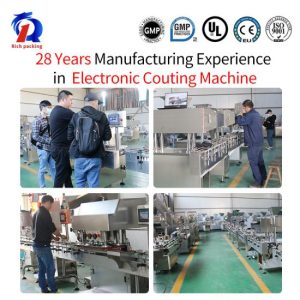A tablet press and its operations greatly help pharmaceutical production, in increasing the efficiency of it through making things more controlled scale-wise and a lot consistent as well. Tabletting machines, i.e., Tablet presses that compress powder into tablets to very specific criteria - size and weight-dosage uniformity.
By contrast, tablet machines such as the Fette Compacting P3200 (pictured) can manufacture at rates of up to 1. This high-output is an important aspect for the manufacturers of pharmaceuticals who require it from a large scale, quicker lead times and efficiency.
Tablet machines provide precision to manufacture each tablet with a precise volume of active pharmaceutical ingredient(API) For example, the variation in tablet weight may be only 1% even though such products are highly regulated by industry. This sort of accuracy is critical for ensuring the final pharmaceutical product maintains efficacy and safety.
A tablet machine will pay for itself in a relatively short period through decreased labor costs and an improvement of production output, so it is cost-effective to buy one. A high-speed tablet press can run from $200k to a half million dollars but that perhaps is worth the bang for your buck in both potential increased output and overall efficiency. As the great Martin Luther King Jr. aide, "The quality not longevity of one's life is what matters most". This factor is relevant to the durability and performance of produced tablets.

Multiple Tooling Stations: Tablet machines are designed with multiple tooling stations to accommodate different shapes and sizes of tablets. Pharmaceutical companies that manufacture many different products need this flexibility. Standard tooling configurations, such as B and D types of equipment available have made from this machine more manufacturing flexible depending on the product requirement.
Pfizer, for instance, is one company that has seen tablet production boost because of new technology. When faced with the COVID-19 pandemic, Pfizer quickly scaled commercial production of an important antiviral therapy using some of their high-speed tablet presses to support timely distribution across borders in response to growing demand. This is a good example of why slates will be needed for urgent health care needs.
Additionally, quality control will benefit from the productivity of tablet machines. Nowadays, the machines are provided with in-line testing like weight checking device, thickness checker and hardness measurement tool. These features were to make sure that each tablet was equal the minimum specification, less likely for defects or recalls.
Yet another important part of tablet machine operations comprises its frequent maintenance. With routine maintenance and periodic lubricanting, cleaning of moving parts and even part replacement you can have the machine for well over 20 years. Preventive maintenance schedules help to reduce downtime and ensure production remains effective, providing evidence that a well-invested asset for long-term manufacturing capacity.
Tablet machines help pharmaceutical companies to make tremendous advances in their manufacturing processes For more specific information, visit tablet machine.